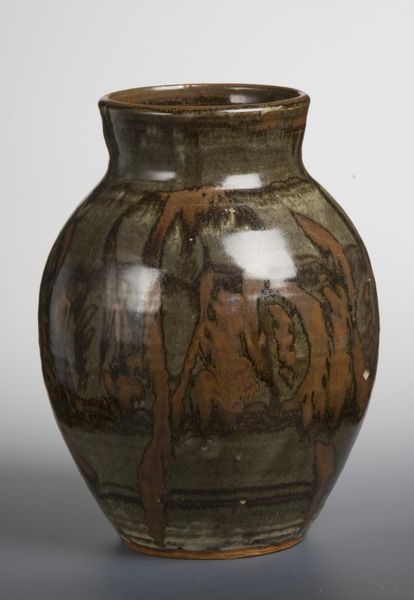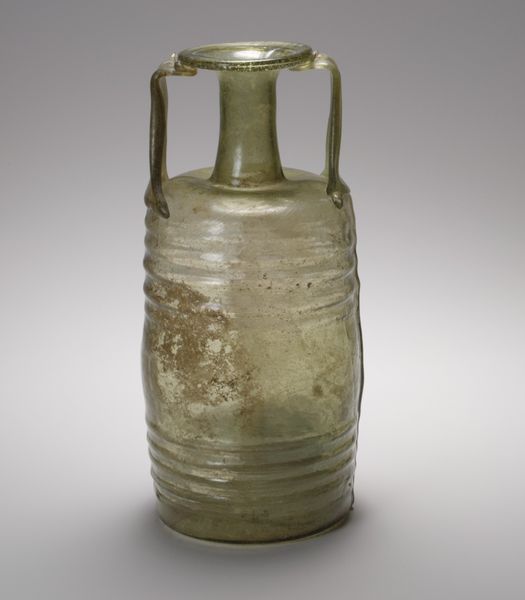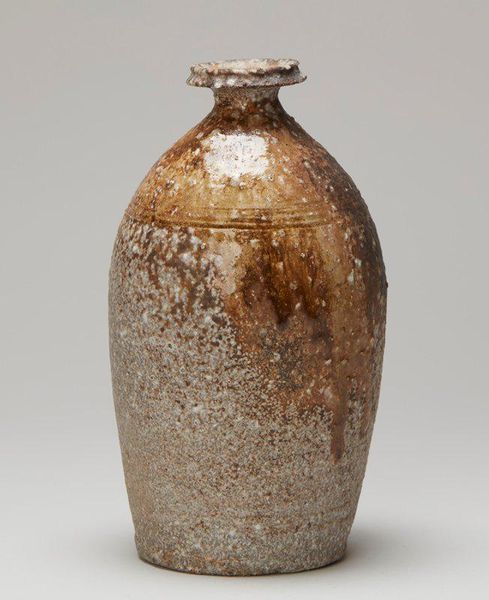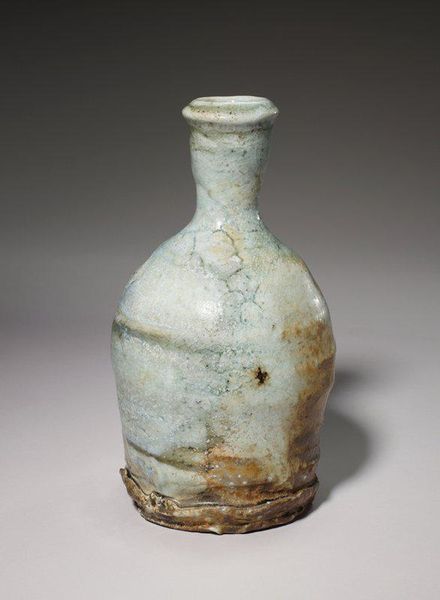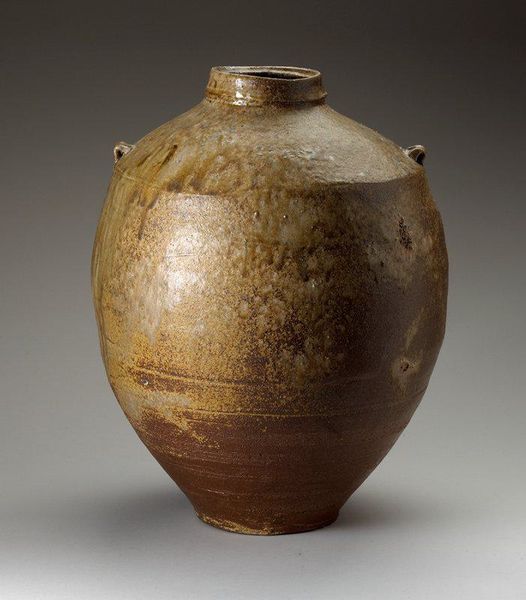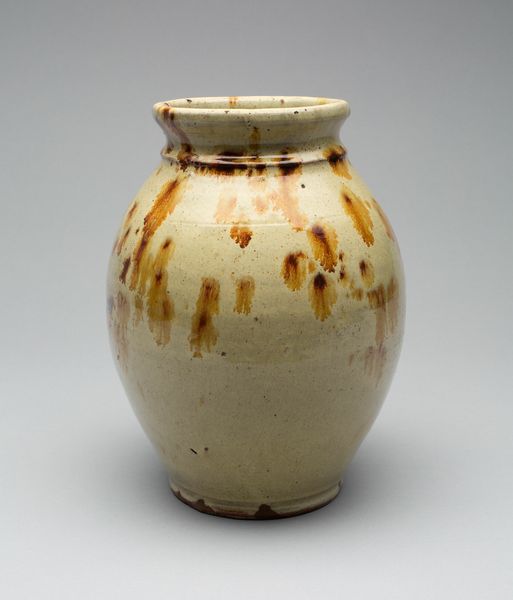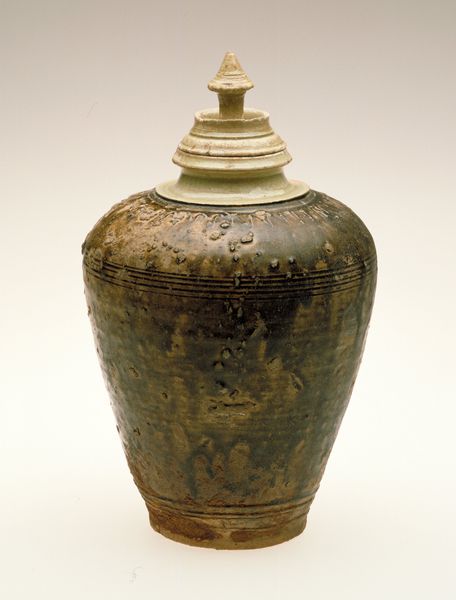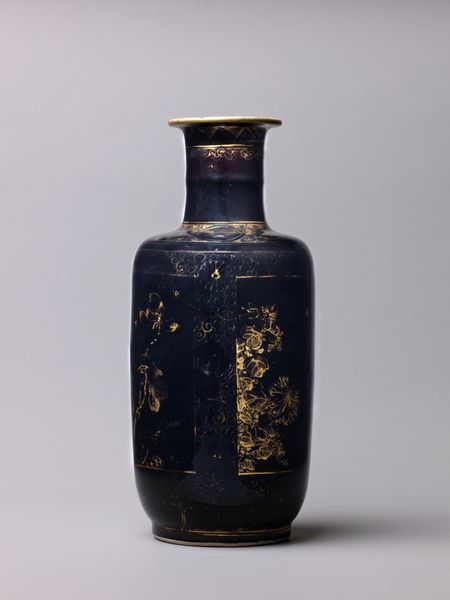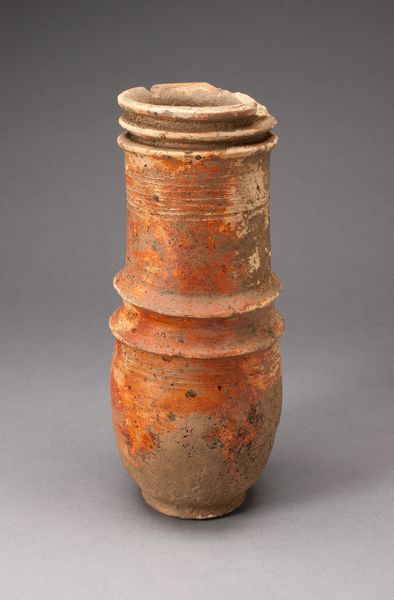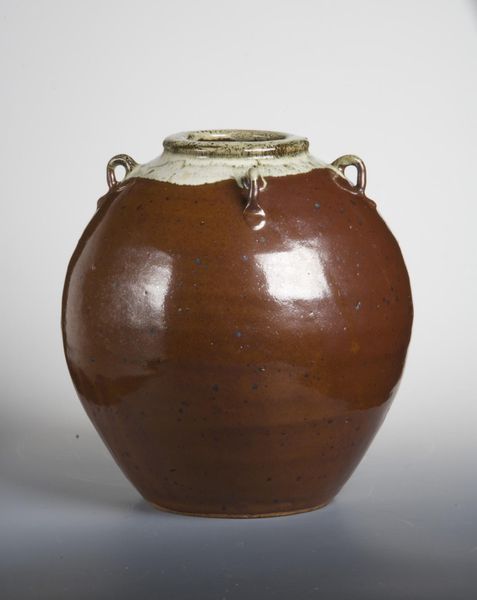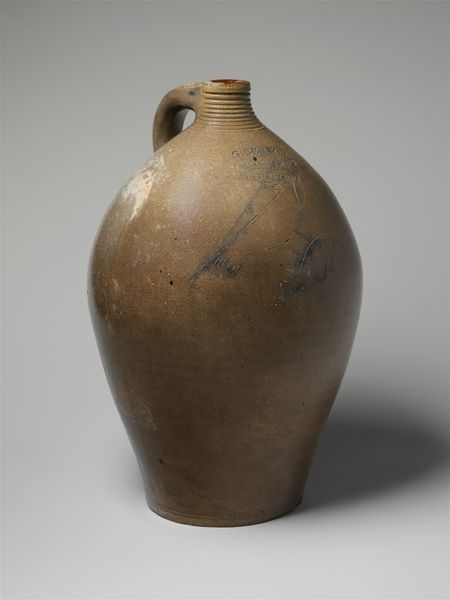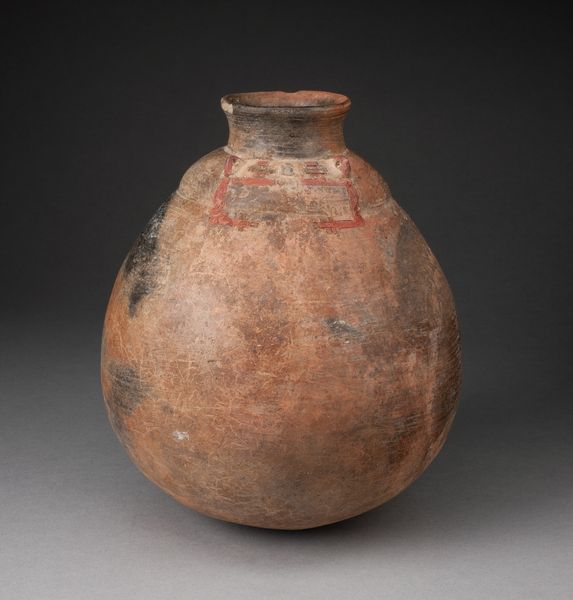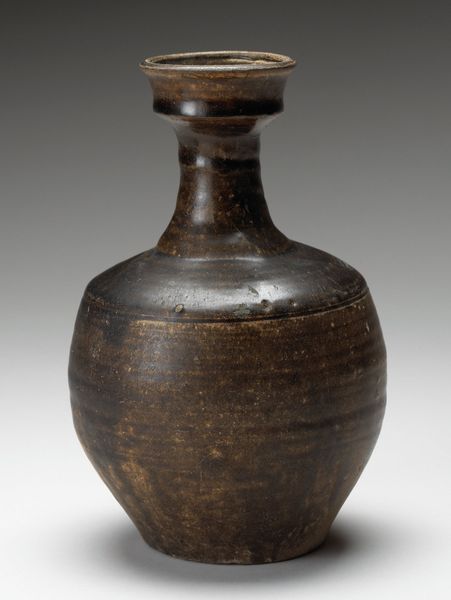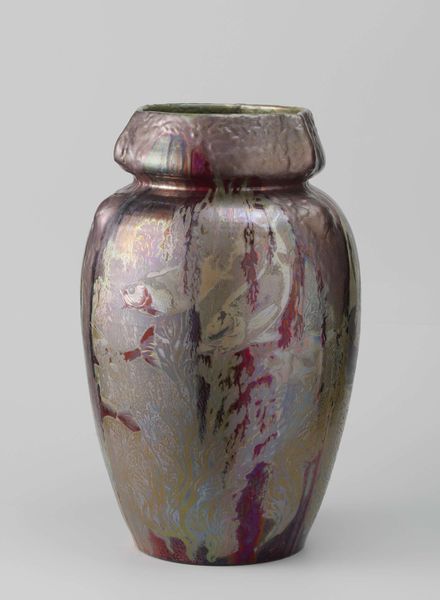
Dimensions: object: 260 x 160 x 160 mm
Copyright: © The estate of William Marshall | CC-BY-NC-ND 4.0 DEED, Photo: Tate
Curator: Looking at William Marshall's stoneware Jar, held here at the Tate, I’m immediately struck by its quiet dignity. It's roughly 26 cm high. Editor: Yes, it feels almost archaeological, doesn't it? Like something unearthed, holding centuries of stories, labor, and perhaps even secrets within its earthy glaze. Curator: Marshall's approach was deeply connected to the physicality of clay. He wasn’t just shaping a vessel; he was collaborating with the earth itself, if that makes sense. Editor: Absolutely. Considering the broader socio-political context, one could say Marshall's focus on raw, natural materials offers a poignant commentary on consumer culture. A quiet rebellion, of sorts. Curator: I love that interpretation. For me, it speaks of finding beauty in the imperfect, you know? A celebration of the natural process. Editor: And maybe a subtle nod to the unsung artisans whose labor often goes unnoticed, their hands shaping history, one piece at a time. Curator: It's funny how something so seemingly simple can hold so much. Editor: Indeed, and how it might challenge our notions of value and artistry in the modern world.
